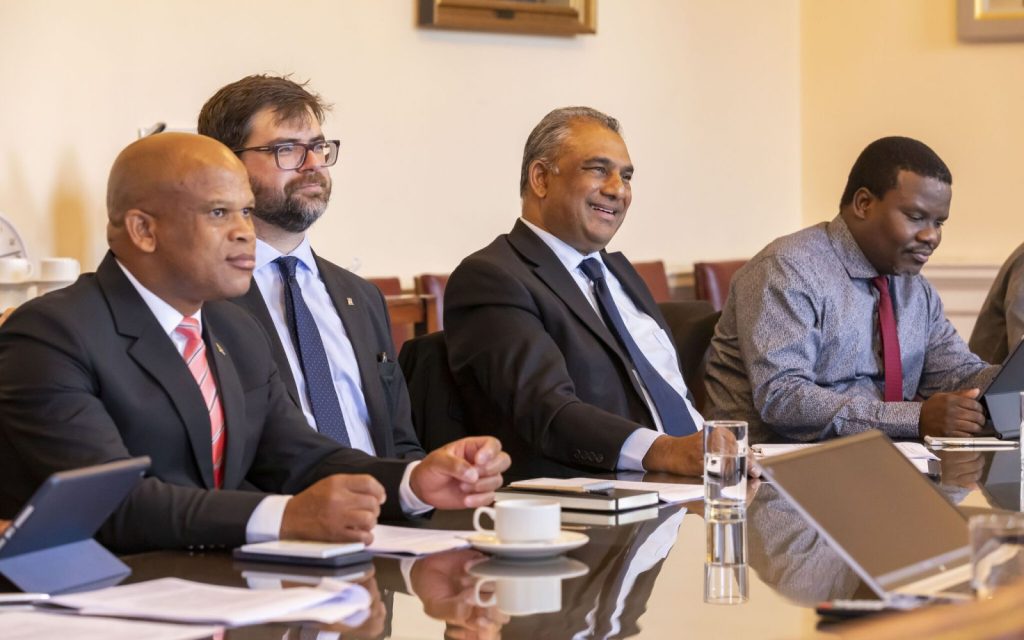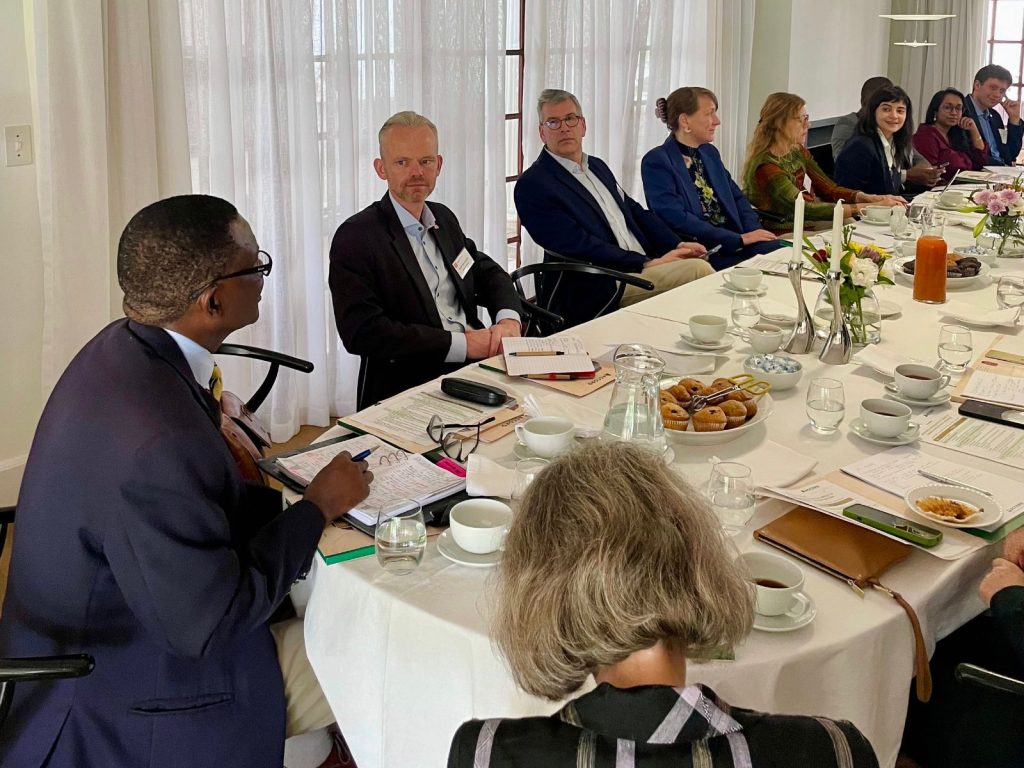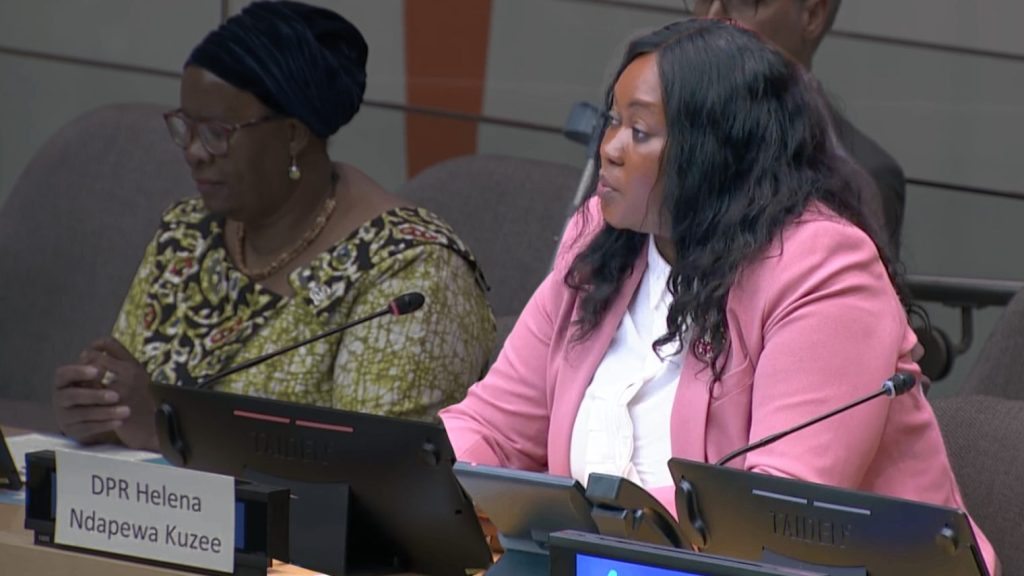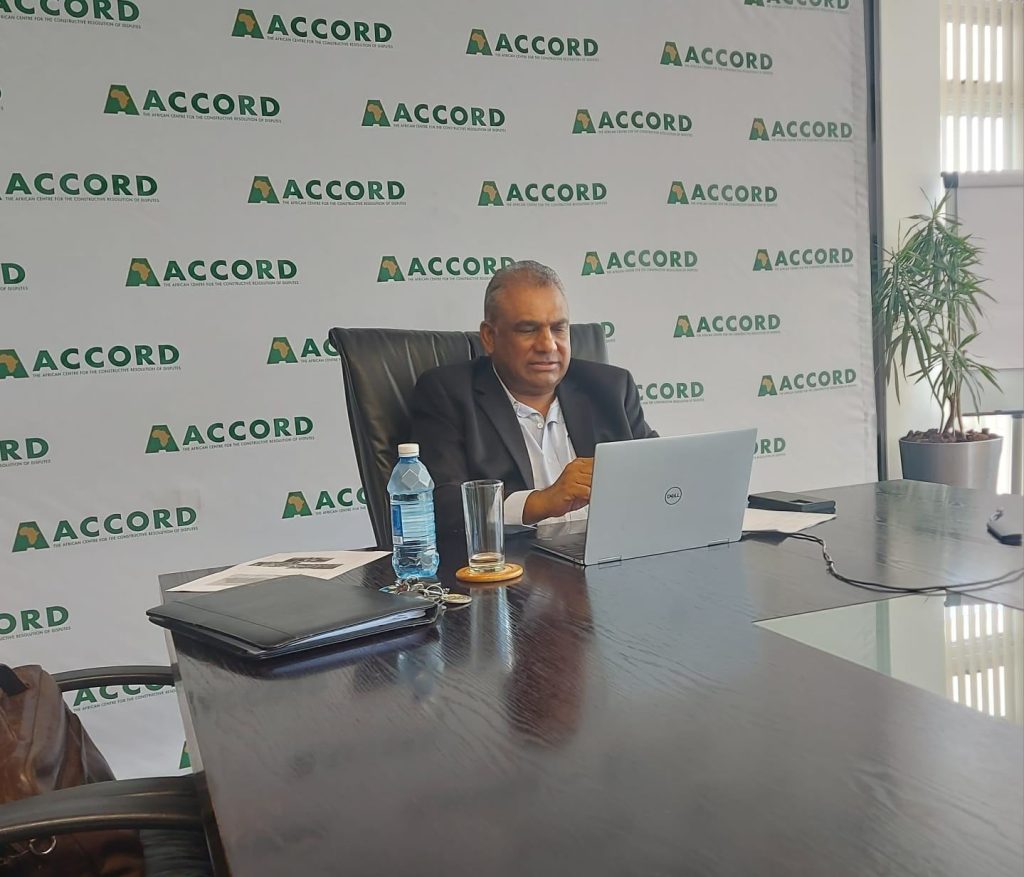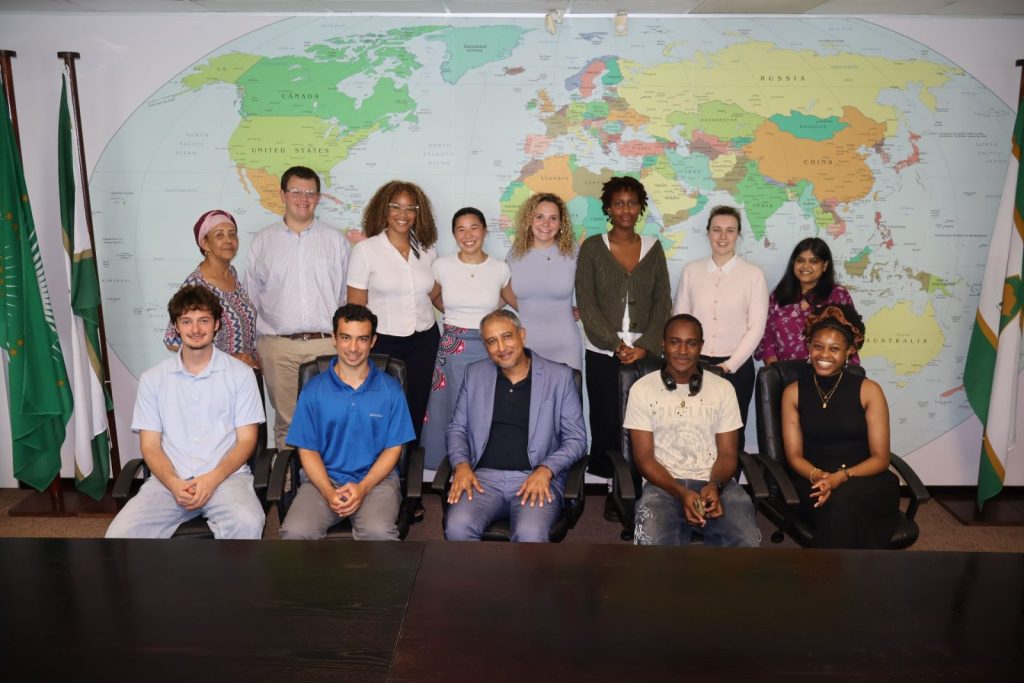The 2nd Annual CSO-UN Dialogue on Peacebuilding took place at the UNHQ in New York on 12-13 December. This event brought together a diverse group of civil society stakeholders from across the globe.
ACCORD participated in the Dialogue as a member of the Core Group, which consists of 10 global and regional civil society networks and organisations focused on contributing to the UN’s peacebuilding agenda. ACCORD was represented by Karishma Rajoo, General Manager for Programmes, and its nominated participant, Mohamed Kunta, the former West Africa AU Youth Ambassador for Peace and youth peacebuilder from Sierra Leone.

The Dialogue was co-chaired by the UN’s Political and Peacebuilding Affairs (DPPA), Peacebuilding Support Office (PBSO) and InterPeace. It focused on the key thematic priorities of the 2025 UN Peacebuilding Architecture review, including conflict prevention, financing for peacebuilding, civil society and youth inclusion in peace and security.
Awa Dabo, Deputy Head of the PBSO emphasised the importance of the Dialogue as a platform for peacebuilding that demonstrated the power of collective action to address global challenges. With over 50% of women participants and close to 20% of youth in attendance, the Dialogue highlighted the increasingly complex drivers of conflict and the urgent need for more meaningful inclusion of civil society, localisation and for increased trust-building at the global, national and local levels.

ACCORD facilitated the Africa group session on Advancing Civil-Society-UN partnerships at the country and regional level. The session looked at ways to strengthen access and engagement with the UN peacebuilding architecture, sharing of best practices for building strong operational partnerships between civil society, UN agencies, and member states at the national level, and ways in which the UN-CSO partnerships can be strengthened to be more systematic and more inclusive.
Discussions highlighted the need for greater national prevention strategies that are timely, inclusive, and locally grounded, the relevance of quality financing for peacebuilding and conflict prevention, and the increased and meaningful participation of youth. Overall, the 2024 Dialogue served as a significant opportunity civil society, the UN and Member states to engage in meaningful exchanges and share experiences. This process was reflective and aimed at preparing for the 2025 Review and implementing actions of the Pact for the Future regarding international peace and security.




